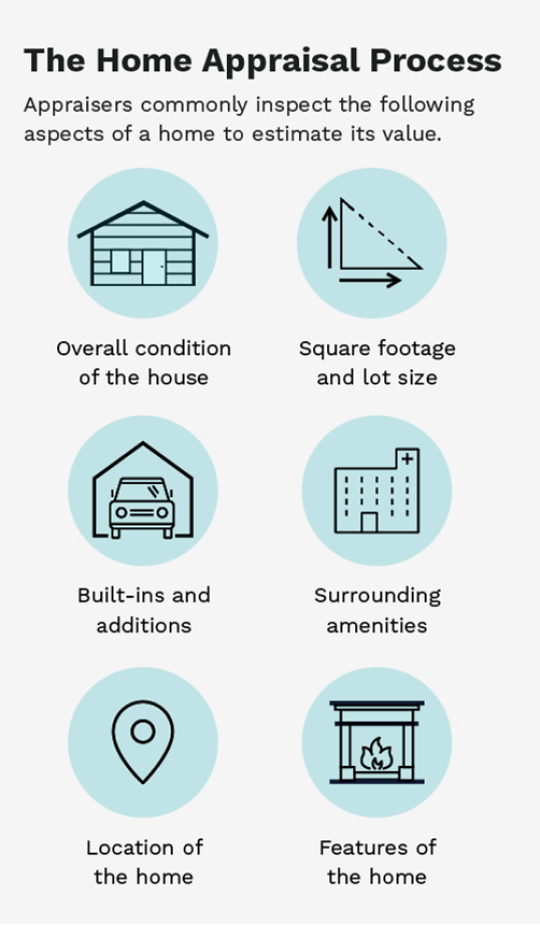Consumer Resource Center
FDIC Tips on Appraisal Bias and Valuation to Address
Consumers’ Frequently Asked Questions
What is a Property Appraisal or Evaluation?
An appraisal is a point-in-time opinion of value. When a consumer is purchasing or refinancing a home, the lender may require an appraisal. If an appraisal or evaluation is required to issue a home loan, the lender (typically a bank) orders one to determine the value of the home they will finance under a home mortgage loan (for a purchase or refinance transaction). An evaluation might be used in situations where an appraisal is not required by law. Like an appraisal, an evaluation provides a written estimate of the value of a property. In other words, whether an appraisal or evaluation is used, the lender needs to know how much money the home is worth.
An appraiser or lender may determine that the value of the home is lower than the prospective borrower expected. When consumers receive a valuation they suspect may have errors or may have been influenced by discrimination, they may have options to challenge or appeal the appraisal or evaluation and provide data if they suspect that the valuation is not accurate.
A Reconsideration of Value (ROV) is a process of appealing a property appraisal. A consumer can ask a lender to reassess the analysis and conclusions of the initial appraisal or evaluation through a reconsideration of value. This reconsideration may occur when there is additional information provided by the consumer that may affect the value conclusion1. As a consumer, if you have concerns about your property’s appraisal, you should talk to your lender about whether they have a process for reconsideration of value, and if so, what is the process for requesting one. Depending on that process and your particular circumstances, you may be able to raise concerns about errors or information not considered in the initial appraisal (such as comparable properties). Please note, a request for an ROV is a remediation step to seek an accurate and fair property valuation. Not all lenders, however, may offer such a process since such reconsideration is not required by law. However, if you suspect any possible discriminatory action through the lending process, please see the complaint process below.

Image Courtesy of HUD
Where Can You Get Help?
If you believe your property appraisal was not accurate, suspect any possible discrimination in the lending process, or have an appraisal-specific complaint, you should contact your lender about whether they have a process for reconsideration of value, and if so, what is the process for requesting one. In addition, you could contact the lender’s primary federal regulator. Here are some resources to assist you:
- The FDIC’s BankFind is a way for consumers to locate information on current and former FDIC-insured banking institutions, including their primary federal regulator.
- The FDIC Information and Support Center allows users to submit inquiries or complaints about financial institutions to the FDIC for assistance and resolution. You can also contact the FDIC Contact Center at 1-877-ASK-FDIC (877-275-3342).
- Contact the Appraisal Subcommittee Appraisal Complaint National Hotline
- Contact HUD if you think you received an unfair appraisal.
Property Appraisal and Valuation Equity
In June 2021, the Interagency Task Force on Property Appraisal and Valuation Equity (PAVE) was established to address inequities in home appraisals. The PAVE Task Force consists of thirteen federal agencies and offices. The PAVE Task Force aims to evaluate the causes, extent, and consequences of appraisal bias and to establish a transformative set of recommendations to root out racial and ethnic bias in home valuations.
The PAVE Task Force issued an Action Plan, which outlines the affirmative steps, including a set of policy commitments and consumer-facing actions, that the FDIC and other federal agencies will take to reduce substantially the prevalence and impact of racial and ethnic bias in residential property valuation.
The FDIC has made a number of concrete commitments as a member of the Task Force. Read the Statement of FDIC Chairman on Appraisal Bias and commemoration of one year anniversary of the release of the PAVE Action Plan.
Why is Appraisal Bias a Concern?
- Independent, fair and objective home appraisals and valuations are a critical element of homebuying and lending processes.
- Homeownership remains one of the biggest drivers of the racial and ethnic wealth gap, with wide racial and ethnic disparities in homeownership rates and the financial return associated with sustainable homeownership.2
- For generations, bias in home valuations has limited the ability of Black and Latino families to benefit fully from enjoying the financial returns of homeownership.3
“Since the release of the Action Plan one year ago, FDIC staff have been closely coordinating and collaborating with staff from other PAVE member agencies to fulfill the PAVE Action Plan’s commitments and recommendations. These efforts are helping to shift the public’s understanding of appraisal bias from a rare event affecting an occasional homeowner to a significant issue that affects wealth formation and opportunities in minority communities nationwide—the same communities that have suffered historically from discrimination, redlining, and disinvestment.”
- FDIC Chairman Martin J. Gruenberg
1,2,3 https://pave.hud.gov/sites/pave.hud.gov/files/documents/PAVEActionPlan.pdf

